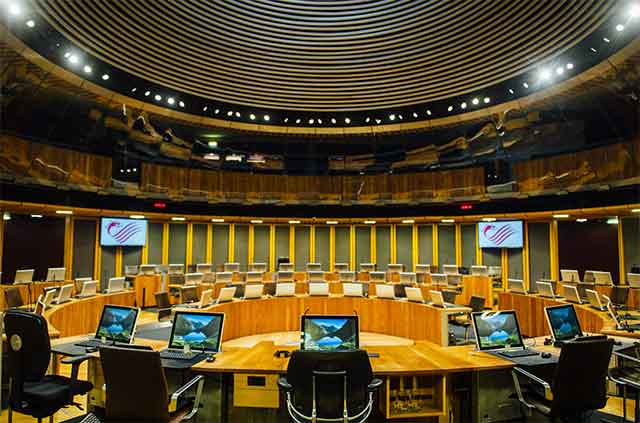Raising tuition fees to £9,535 a year passes the cost of national insurance hikes to students and “won’t touch the sides” of a £100m shortfall, the Senedd heard.
Opposition politicians quizzed Wales’ higher education minister after she announced fees for undergraduates will rise by £285 or 3% to the same level as in England from August 2025.
Vikki Howells, who was appointed in September, confirmed tuition fee loans will also rise to up to £9,535, with student support increasing by 1.6% in the 2025/26 academic year.
Ms Howells announced an extra £20m for Medr, a public body which was established this year to oversee all post-16 education and research in Wales.
During education questions in the Senedd on December 4, Conservative Tom Giffard asked how much the UK Government’s national insurance increase will cost Welsh universities.
‘Zero-sum game’
Estimating the cost at about £20m, Ms Howells said: “The announcement I’ve made today to raise the tuition fee cap in Wales to £9,535 is estimated to cover those costs to universities.”
Mr Giffard replied: “What you’ve done minister is offset the cost of a Labour UK policy by increasing tuition fees for students to pay for it….
“Before that announcement about employers’ national insurance, universities estimated that they run a deficit, cumulatively, of about £100m and yet nothing that has happened so far will address that blackhole.”
The shadow education secretary added: “Taking those two policies in combination, it’s a zero-sum game … the thing that students and universities have in common is that they were promised greater support … and only received greater bills.”
He pressed the minister about emergency funding, raising concerns about three years of cuts leaving Welsh universities worse off than counterparts in the UK.
‘Funding crisis’
He warned: “This crisis is real, the university funding crisis is very, very real and it’s immediate – so what are you going to do about it?”
Ms Howells said an analysis of higher education fees and funding across the UK found Wales offers the most generous student maintenance support.
She emphasised the need to balance the needs of students and universities, vowing to put the higher education sector on a more sustainable footing.
She told the Senedd: “If the tuition fee cap was not raised in Wales then it would definitely put our universities at a disadvantage.
“The decision that I’ve taken will not affect the amount of money available to students while they study and neither will it result in graduates repaying more each month. Only those who go on to be the higher earning graduates will likely pay back this increased fee.”
‘No coherent strategy’
Ms Howells stressed that universities are autonomous and pointed out that 90% of their funding comes from sources outside of the Welsh Government.
Cefin Campbell, Plaid Cymru’s shadow education secretary, warned an extra £20m for Medr could be “swallowed up straight away” and “doesn’t touch the sides” of a £100m shortfall.
Mr Campbell said: “Increasing tuition fees in Wales will undoubtedly burden students with even greater debt, especially those from disadvantaged backgrounds.”
He accused the Welsh Government of taking its eye off the ball over the past 25 years, warning of no coherent strategy and a lack of investment.
The former lecturer said £2 out of every £5 the Welsh Government spends on student fees goes to subsidise universities in England, with £500m a year being spent outside Wales.
‘Reductionist’
He told the debating chamber or Siambr: “As a result of today’s announcement, even more Welsh taxpayers’ money will flow across the border,”
Mr Campbell, who represents Mid and West Wales, raised concerns about 40% of students leaving Wales for higher education, compared with 5% in Scotland and 9% in England.
Raising concerns about the so-called brain drain, he warned that taxpayers’ money is being used to export Wales’ best and brightest students beyond the border.
Ms Howells rejected the “reductionist” argument, saying it would be wrong to limit the horizons of students who choose to study elsewhere.
She said: “It is absolutely imperative that we support our young people to study wherever they wish to. We need to empower our young people to make the best decisions they can.”

